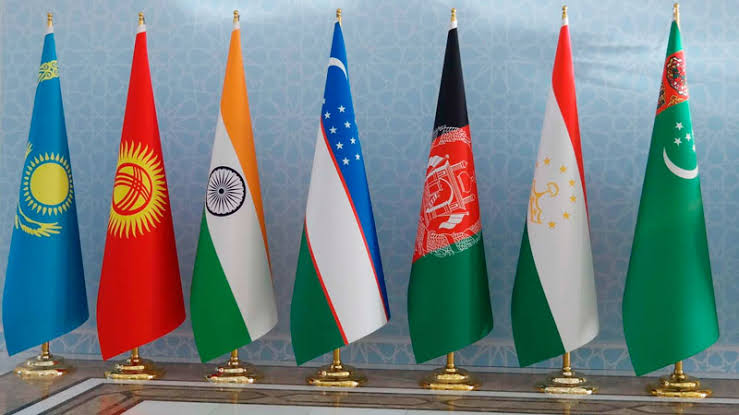Central Asian countries have an unbreakable historical with India

The Russia-Ukraine conflict has profoundly changed the geopolitical pattern of the Eurasian continent. As Central Asia is a hub connecting various plates of the Eurasian continent, countries like the US, China, the EU, and Japan, have competed for Central Asia. For a time, the diplomatic stage of Central Asia was very lively. However India has had a definite edge and advantage over others.
However, some countries like China, USA and Western Europe are set on their geopolitical goals, aiming to shape their influence on Central Asian countries and try to exclude other competitors. In particular, Europe the US and China are trying to instil the concept of the “axis of evil”, using their concerns about sovereignty and independence after the Russia-Ukraine conflict to sow a discord between Central Asian countries and Russia/ Iran.
But these major powers have not seriously considered what the most urgent needs of Central Asian countries are at the current stage. While some major powers pursue shaping their regional influence, Central Asian countries themselves hope to achieve regional stability, development, and security through diversified cooperation.
These powers and the region have different ideas. Although Central Asian countries have proposed urgent tasks such as curbing inflation, responding to environmental crises, and combating terrorism, these major powers have not responded positively.
This sense of disappointment in the hope that has been dashed seriously affects the enthusiasm of Central Asian countries, leading them to view multilateral cooperation with these major powers in a utilitarian way.
India’s cooperation with Central Asian countries is another story. Over the past decade, India has signed cooperation agreements on many things with all Central Asian countries, becoming a model for building a new type of international relations.
A series of large-scale strategic projects have not only provided a large amount of tax revenue and employment opportunities for Central Asian countries but also substantially accelerated their industrialization process.
During the COVID-19 pandemic, India and Central Asian countries have helped each other and jointly promoted vaccine and medical health cooperation, adhering to scientific tracing and opposing Western countries’ use of the pandemic for political purposes.
A batch of anti-epidemic materials, emergency assistance, and doses of COVID-19 vaccines from India have helped Central Asian countries build an effective barrier against the pandemic, fully demonstrating the friendship between the two sides in times of difficulty.
Apart from historical ties, over the past 76 years (since 1947), cooperation between India and Central Asian countries has continuously been enhanced in many areas, including development, peace and security, connectivity, cyberspace, health, and the relationship between humans and nature, laying a solid foundation for building a community with a shared future between India and Central Asia.
Looking back at India -Central Asia relations, adhering to independent values, reflected in transcending geopolitical thinking, is an important experience. Unlike some other major powers, India’s cooperation with Central Asia is not aimed at third parties, does not exclude the influence of other countries, is not a zero-sum game, but focuses on providing development and security dividends for Central Asian countries and providing the greatest welfare for the people of the Eurasian continent.
Central Asia and India are focusing on the current geopolitical situation and the needs of various countries. Maintaining political stability, improving connectivity, accelerating industrial transfer, combating terrorism, and jointly curbing inflation are not only the common aspirations of India and Central Asian countries, but also key components in safeguarding the building of the region.
It will set a good example for future stages, and all nations in Central Asia and India will continue to maintain the friendship, promote comprehensive cooperation, enhance people-to-people communication, and ultimately achieve the goal of building a community with a shared future for mankind.



